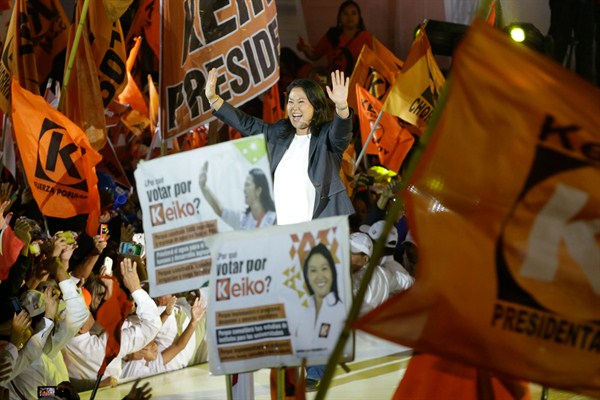LIMA, Peru—As Peruvian voters head to the polls this Sunday to elect a new president, many will be thinking of former President Alberto Fujimori, who governed from 1990 to 2000 and is now imprisoned in Lima for crimes ranging from corruption to authorizing death squad killings. Reviled by some Peruvians and admired by others, Fujimori has a polemical but powerful political legacy here, where his daughter Keiko is the front-runner in the presidential race, his son Kenji was recently re-elected to the Peruvian Congress, and a political movement he created won a majority in the Congress during the first round of voting on April 10.
On June 5, voters will choose between 41-year-old Keiko Fujimori, a former congresswoman with an M.B.A. from Columbia Business School, and 77-year-old Pedro Pablo Kuczynski, a former finance minister, World Bank economist and investment banker. The unusual matchup is the result of a tumultuous first round of voting in which Fujimori, who Peruvian’s simply call Keiko, won nearly 40 percent of votes and Kuczynski, popularly known as PPK, came in second among 10 candidates with 21 percent. Peruvian law prohibits the incumbent, President Ollanta Humala, from seeking a consecutive term in office and requires a second round of voting for the top two presidential candidates if no one receives more than 50 percent in the first round.
Though he has been a leading political figure since his unsuccessful run for president in 2011, Kuczynski barely made it into the second round, beating leftist congresswoman Veronika Mendoza by just two percentage points. Kuczynski benefitted from a March 4 decision by the Special Electoral Jury that declared two strong candidates, Julio Guzman and Cesar Acuna, ineligible to run, due to a technical error in Guzman’s case and vote buying in Acuna’s.

